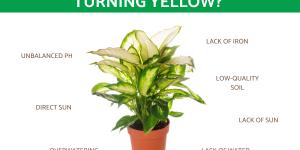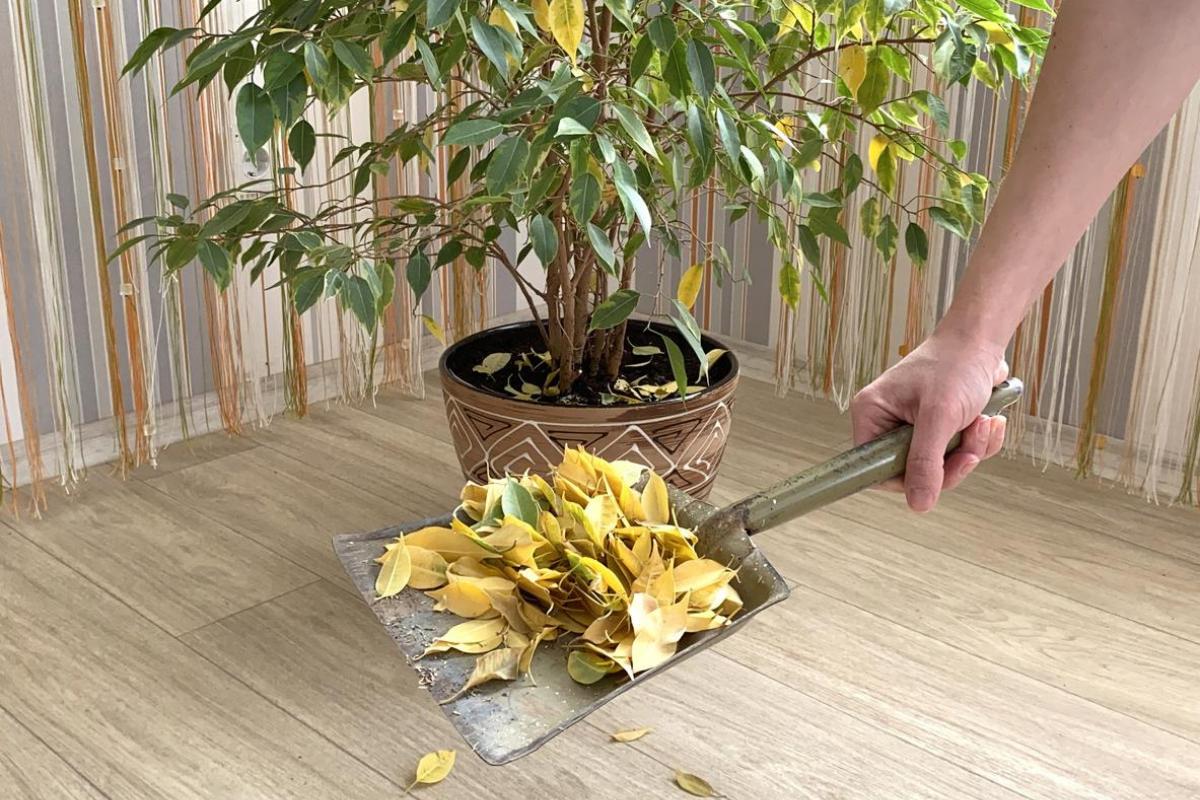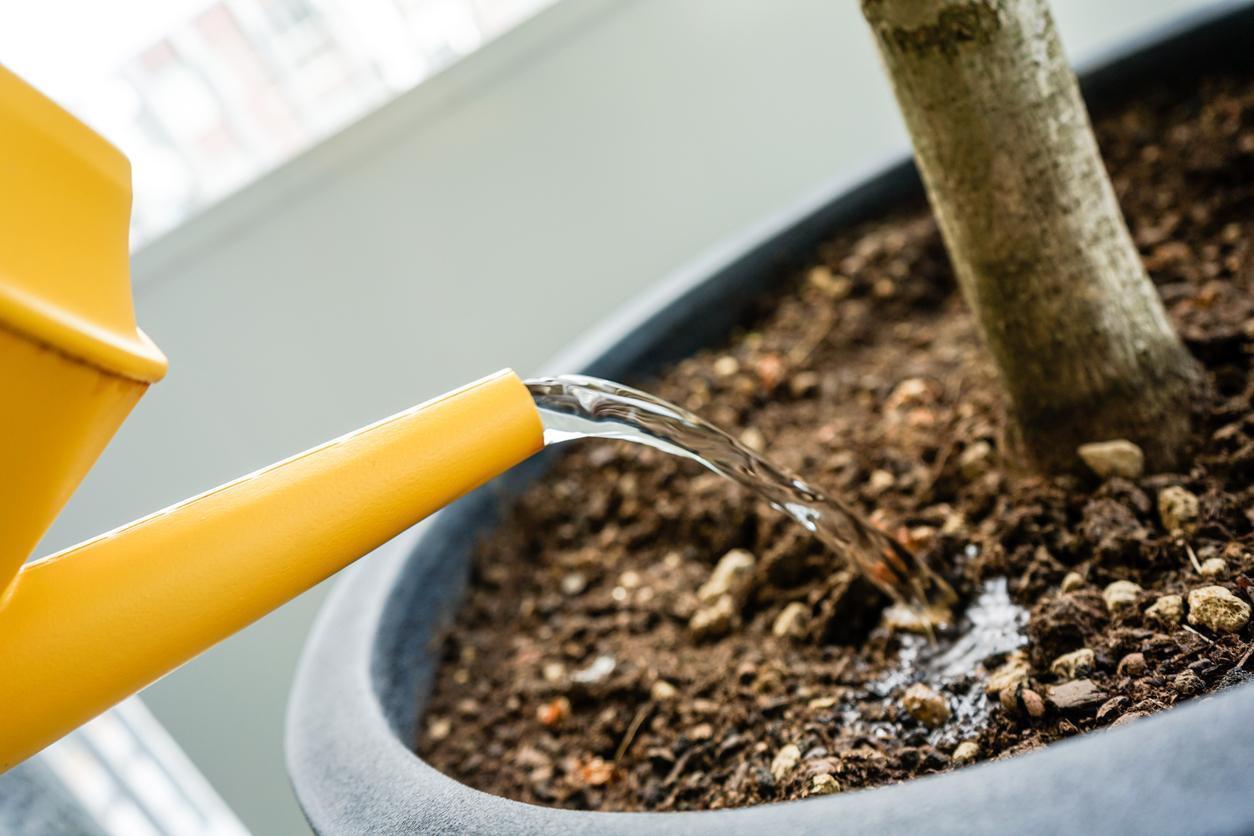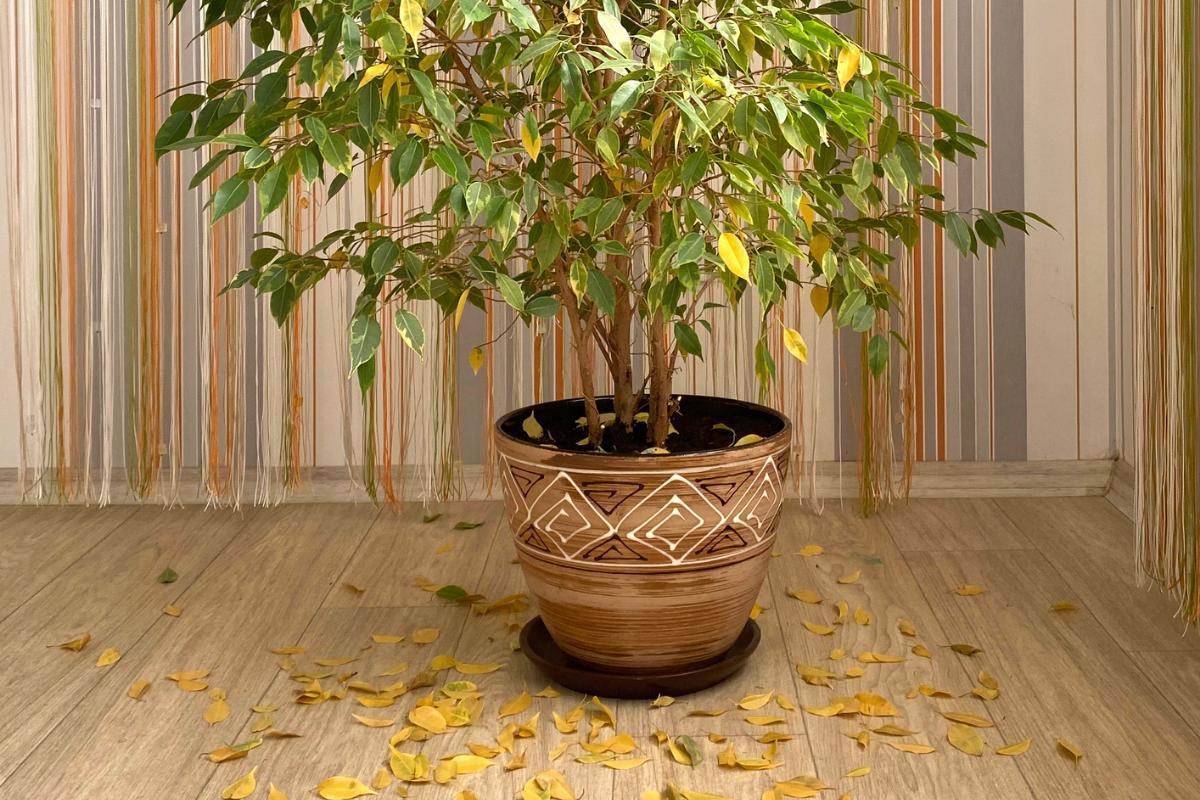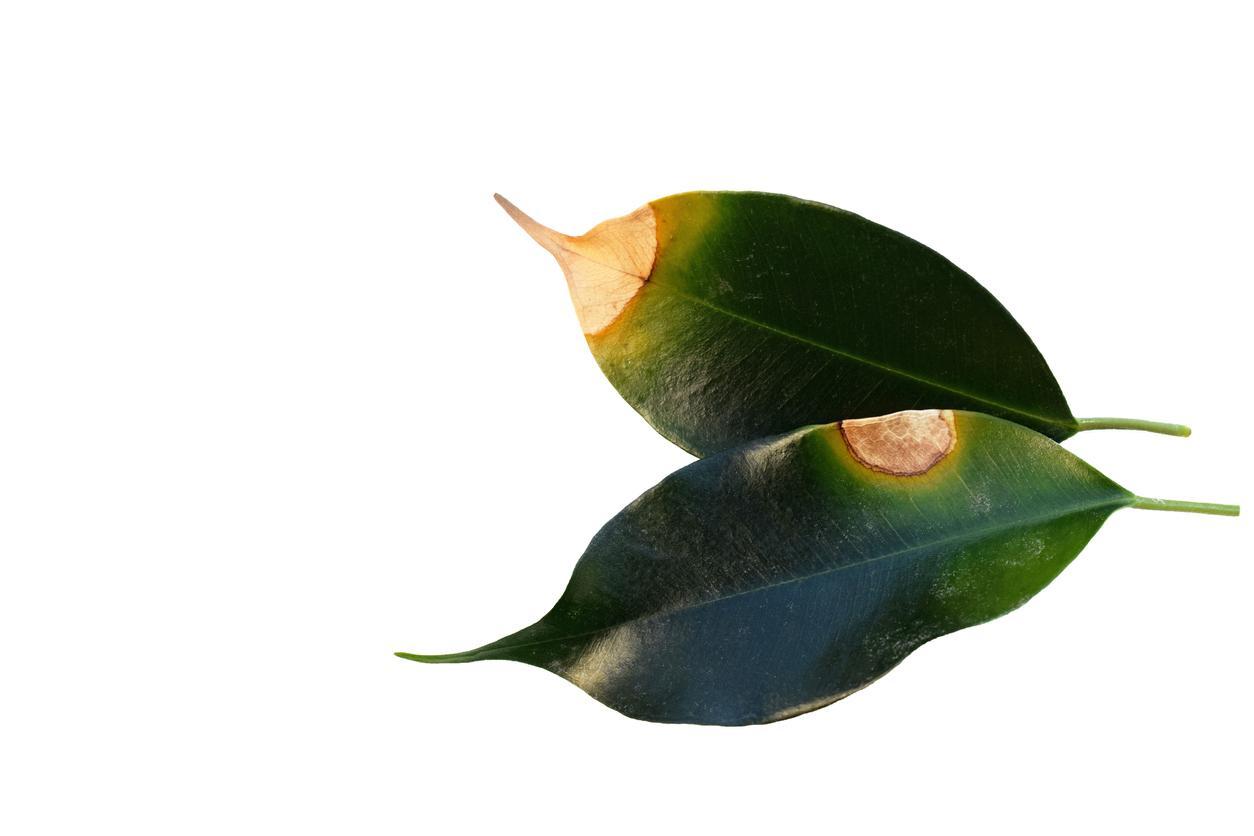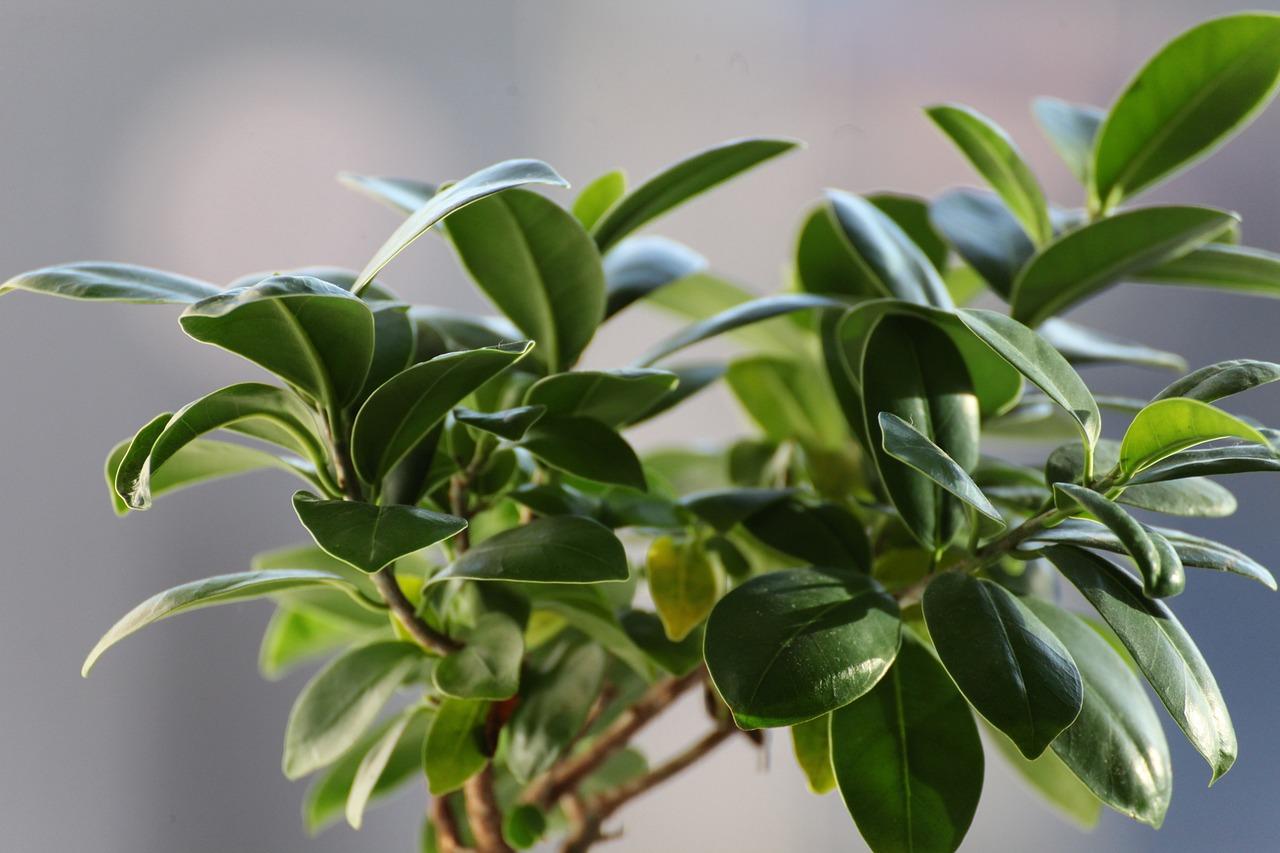Why Is My Ficus Dropping Leaves?


Plants from the genus Ficus are known as fig trees, but many are kept as indoor plants. One of the most common is the weeping fig (Ficus benjamina). While this plant can grow into a very large tree, it is often kept potted indoors as a plant. It is relatively easy to care for and is a fairly robust plant for all kinds of weather. However, given the wrong level of care, it will become damaged. With sufficient neglect or poor care, it will die. Various symptoms can tell us that a ficus is in trouble. thedailyECO looks at one of the most common in our article asking why is my ficus dropping leaves? We discover 9 causes and solutions to this common ficus problem.
- Change of season
- Improper watering
- Drafts
- Changing environment
- Lack of light
- Excessive fertilizer
- Too small a pot
- Pruning at the wrong time
- Parasites and diseases
- Will my ficus leaves grow back
Change of season
We begin by explaining that a ficus dropping leaves is not always a sign of disease or that the plant is in trouble. Ficus plants will naturally drop leaves when the seasons change. This is often because the shedding of the old leaves help them to maintain energy for growth of new ones. For this reason, it is especially noticeable when the seasons change from winter to the arrival of spring. If you have a healthy ficus, you will not need to worry if they drop leaves in this way.
Learn about how diseases can affect plants with our article on why a plant's leaves are turning black.
Improper watering
Ficus plants are quite delicate when it comes to irrigation, especially when it concerns water quantity. If you water too much, you will waterlog the soil. This causes the roots to rot and the leaves to turn yellow, potentially killing the plant. If you water too little, the leaves will fall quickly. If you water with water that is too cold, the leaves will also fall and you will damage the roots.
Keep the substrate at a certain level of humidity at all times, always without waterlogging and using water at room temperature. If the first two centimeters of the substrate dry out, water again or the plant will quickly begin to drop its leaves.
Learn more about alternative ways to irrigate plants with our article on the benefits of rice water for plants.

Drafts
Ficus are plants that do not tolerate drafts. These air currents dry out the plant. Being a species that needs fairly constant humidity, the plant will begin to lose leaves immediately. If you see that only the tips of your ficus leaves are dry, it is most likely because it is placed in a location that is too exposed to drafts. Move the pot or transplant the tree to a more sheltered area before it is too late.
Changing environment
Whenever a ficus notices notable changes in its environmental conditions, it becomes stressed and reacts by dropping its leaves as an energy-saving measure. If you move it from one location to another, if you change the air conditioning or if you have just brought it into a new home, the ficus will most likely lose many of its leaves as a first reaction, although it should adapt quickly in a short time, producing new leaves without problem.

Lack of light
Another of the most important aspects of care for the ficus plant is the amount of light they receive. Ficus are very demanding in terms of light, since they are trees originating in tropical areas. They tend to grow best when directly exposed to the sun. Grown indoors it is especially important to give it as much light as possible, taking the plant outside if necessary in the darker months.
If it doesn't receive enough light, your ficus will quickly drop leaves. In fact, it is normal for it to lose some with the arrival of shorter days in the cold months or when you return it indoors after exposing it to more sun outdoors.
Ficus plant leaves are usually bold green, but they can range in hue. Some even have beautiful red or other markings. Learn more with our article on plants with colorful leaves.
Excessive fertilizer
Unlike most plants, ficuses do not take well to regular fertilization or at least not to the same extent. This does not mean that they do not need fertilizer at all, but it should be applied at the beginning of spring and not again until the next season. If your ficus needs more nutrients, use a slow-absorbing fertilizer, but apply it at half the generally recommended concentration.
Learn more about which fertilizer to use with our article on the disadvantages of organic fertilizer.

Too small a pot
Ficus plants grow quickly. If the roots run out of room in the pot and become too tangled together, the plant will become stressed. This may be another reason your ficus is dropping leaves. Transplant the ficus whenever it outgrows a pot, once a year or every two years. The better the light and water conditions for your ficus, the faster it will grow.
Pruning at the wrong time
Given the rapid growth of ficus, it is usually necessary to prune them when kept indoors. This is especially so if they are in good condition. Always prune your ficus with a very sharp and sterilized pruning tool. Do it at the beginning of spring so that the plant is stressed as little as possible and loses the least number of leaves.
Discover how pruning can revise certain plants with our article on how to bring a poinsettia back to life.
Parasites and diseases
There are a large number of pests and fungi that can attack ficus plants, weakening them and causing the leaves to drop off. Excessive watering and lack of light will make the plant susceptible to attack by fungi, mites and insects such as aphids. It is necessary to regularly check the condition of its leaves, including the underside. Act as soon as possible if signs of these problems appear.
Although we are discussing another species of plant, our article on the common diseases and pests of orchids will help you to better understand which threaten your ficus plant and make their leaves drop.

Will my ficus leaves grow back
If your ficus plant has experienced dropping leaves, it will be due to one of the above reasons. In every case, we can treat the plant, given the right circumstances. This means you will have to catch the problem in time, acting quickly and appropriately when you do. In these cases, the ficus can return to health and their leaves will grow back.
However, if you see your ficus leaves dropping off and ignore this symptom of a problem, the plant may not be able to recover. If the roots rot or they are overcome by disease, the plant will dry and the plants will not grow back. Monitoring for signs of problem is an important aspect of ficus care.
If you want to read similar articles to Why Is My Ficus Dropping Leaves?, we recommend you visit our Plant care and cultivation category.

